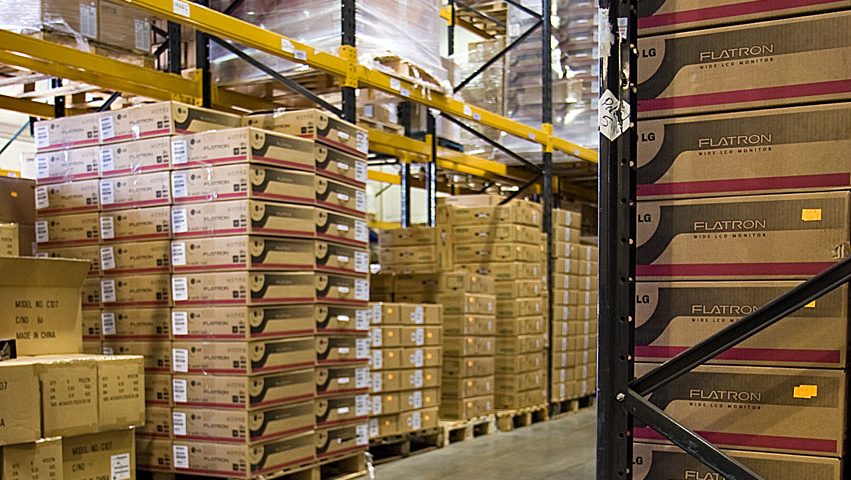
In 2017, the price of a single bitcoin lept from $1,000 to $20,000 within the space of a few months.1 In the ensuing chaos, the hype surrounding cryptocurrencies and blockchain technology swept the globe and led to a boom in investments, production, and regulation in the fintech sector. Three years later, the market has settled down, almost back to what it was previously, but blockchain technology hasn’t gone away.
im·mu·ta·ble /i(m)ˈmyo͞odəb(ə)l/
adjective: immutable
unchanging over time or unable to be changed.: “an immutable fact”.
synonyms: unchangeable, fixed, set, rigid, inflexible, unyielding, unbending
A variety of industries have continued to explore blockchain as a tool that can add transparency and immutability to their transactions, but one of the most promising applications of the technology is in supply chain management. The complex nature of modern supply chain logistics lends itself exceptionally well to the transparent, immutable, and distributed ledger that the blockchain provides.
Transparency and the Supply Chain
Between the sourcing of raw materials, production of finished products, warehousing, distribution and the variety of potential retail options (direct to consumer, brick and mortar, online stores, etc), the supply chain of 2020 is the most complex it has ever been.2 Syncing up orders, shipments and payments in such a way that catches errors quickly is a constant challenge.
That complexity, already prone to mistakes and inefficiencies, is being strained to a breaking point by the added pressure of the COVID-19 pandemic. Since the pandemic changed the equation of supply and demand almost overnight, supply chains have been struggling to keep up.3
By introducing more transparency into logistics, businesses can be much more efficient and resilient in the face of a changing market. When changes or errors do occur, they can be identified and addressed quickly so that all the steps in the chain can adapt in real-time.
Transparency does more than improve efficiencies in the supply chain – it can also increase demand for a product itself. Consumers are increasingly aware of the ethical and environmental impacts of the goods they consume and are willing to act on it – over half report that they would spend more money on a more ethical product.4 By implementing a transparent supply chain, businesses are not only saving money and time but are also improving their image in the eyes of the consumer.
Blockchain: the Public Ledger
By onboarding supply chains to a blockchain, a distributed network would keep all movements transparent and up to the moment. Blockchains, by design, are a public ledger detailing transactions on a network. The key innovation here is the fact that the network is decentralized – by hosting the network on many devices around the world, it becomes virtually impossible to tamper with the data. This creates an environment where trust between two specific parties is no longer a requirement to do business, since everyone can trust that the blockchain is accurate.
In a supply chain, each product would be assigned a unique token on the blockchain – one that would be passed via virtual, immutable transactions across each different touchpoint in the chain.5 Each step updates in real-time so errors, delays, or changes are visible for everyone in the network to see and act on immediately. Since the blockchain is transparent and immutable, consumers and stakeholders alike know exactly where their goods are coming from.
The Supply Blockchain in Action: Coca-Cola Tests the Baseline Protocol
Two weeks ago, Coke One North America Services was confirmed to be working with blockchain start-ups Unibright and Provide to bring the blockchain to their supply chain.6 Their choice to use the Baseline Protocol on the Ethereum blockchain signals potential real-world applications of the technology in the logistics sector.
Ethereum is a popular blockchain for several reasons, chief among them the innovation of smart contracts – the ability to write customized protocols into the blockchain. This immensely expands the usability of the network and allows for an almost limitless array of different applications. The Baseline Protocol, in particular, is designed for enterprise use exactly like the one Coca-Cola is leveraging. It adds a layer of privacy into the public ledger, allowing businesses concerned about their confidential data to still leverage the advantages of the blockchain.7
“The Baseline Protocol is a collection of software on top of Ethereum that enables the internal systems of two or more companies to be synchronized without storing confidential data on the public blockchain. Hence if a supplier has insufficient stock, instead of the buyer being surprised at the delivery of a different quantity, when a supplier makes an alteration, the change is represented on the blockchain.”6
Introducing transparency via blockchain not only makes supply chains more efficient but also empowers businesses to meet constantly shifting supply and demand, thereby ensuring the credibility of the entire chain. New applications of this promising technology will prove, with time, to become an indispensable tool for logistics.
Citations
-
Higgins, Stan. “From $900 to $20,000: Bitcoin’s Historic 2017 Price Run Revisited.” Coindesk. December 30, 2017. Accessed August 21, 2020. https://www.coindesk.com/900-20000-bitcoins-historic-2017-price-run-revisited
-
Zaczkiewicz, Arthur. “The Truck Stops Here.” WWD. February 19, 2020. Accessed August 21, 2020. https://wwd.com/business-news/business-features/retail-logistics-report-1203491914/
-
Haren, Pierre. “How Coronavirus Could Impact the Global Supply Chain by Mid-March.” Harvard Business Review. February 28, 2020. Accessed August 21, 2020. https://hbr.org/2020/02/how-coronavirus-could-impact-the-global-supply-chain-by-mid-march
-
“Global Consumers Are Willing to Put Their Money Where Their Heart Is When It Comes to Goods and Services From Companies Committed to Social Responsibility.” Nielsen. June 17, 2014. Accessed August 21, 2020. https://www.nielsen.com/us/en/press-releases/2014/global-consumers-are-willing-to-put-their-money-where-their-heart-is/
-
Gaur, Vishal and Gaiha, Abhinav. “Building a Transparent Supply Chain.” Harvard Business Review. From the May-June 2020 issue. Accessed August 21, 2020. https://hbr.org/2020/05/building-a-transparent-supply-chain
-
“Coca Cola bottlers to trial public Ethereum for supply chain transparency.” Ledger Insights. August 2, 2020. Accessed August 21, 2020. https://ledgerinsights.com/coca-cola-bottlers-coke-blockchain-ethereum-baseline/
-
“EY and ConsenSys Announce Formation of Baseline Protocol Initiative.” ConsenSys. March 4, 2020. Accessed September 6, 2020. https://consensys.net/blog/press-release/ey-and-consensys-announce-formation-of-baseline-protocol-initiative-to-make-ethereum-mainnet-safe-and-effective-for-enterprises/
